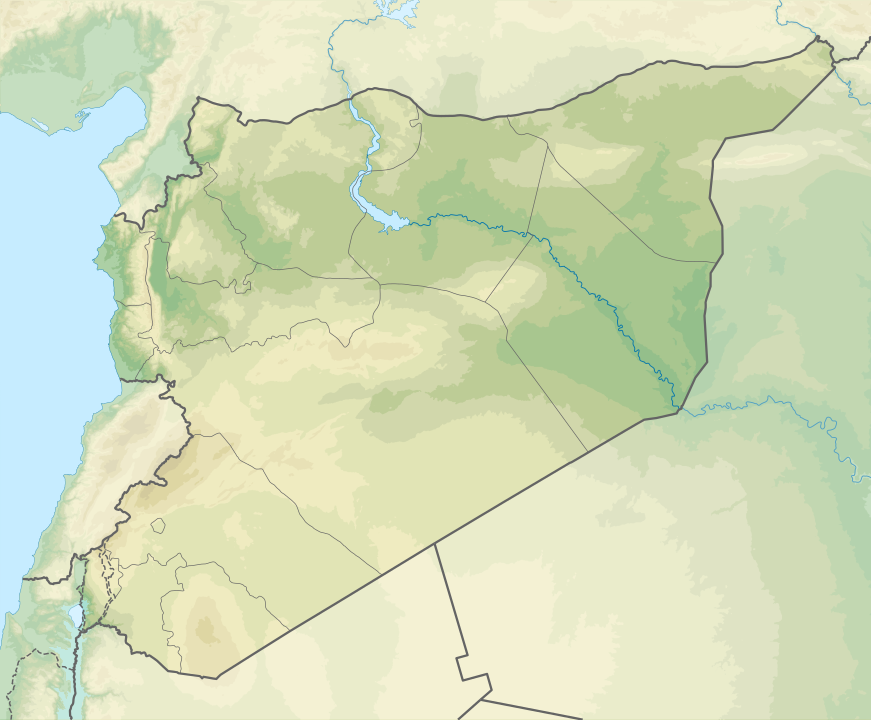
CAMEROON, Cameroon — The United States and key Western allies on Thursday demanded an immediate cease-fire in Syria’s last opposition stronghold in northwestern Idlib which is facing what the U.N. calls an “unfolding humanitarian catastrophe,” but Russia ignored their calls and said it will keep helping the government eliminate “terrorists” from Idlib.
The standoff came at a U.N. Security Council meeting on Syria where the U.N.’s deputy humanitarian chief Ursula Mueller said almost 950,000 people have fled an advancing Syrian government offensive since it began on Dec. 1. She described a video conversation last week with 14 Syrian women in Idlib and northern Aleppo who are humanitarian workers and said what is happening “is beyond imagination” and “not humanly tolerable.”
“They told me of children so traumatized they no longer speak” and said the situation is so stressful that pregnant women are experiencing early deliveries, miscarriage and low-birth weights, Mueller said. The women also had a message: “All we are asking is for the misery to stop, for the killing to stop. We want the right to live.”
Henrietta Fore, the head of the U.N. children’s agency UNICEF, said tens of thousands of those who have fled, more than half of them children, “are now living in makeshift tents, public buildings and in the open air, huddled under trees — exposed to rain, snow and the sub-zero cold of a harsh Syrian winter,” adding “we’ve heard and read reports of children freezing to death.”
In the northwest, she said, 180 schools are not operating and “286,000 children have had their education cruelly snatched away.”
U.S. Ambassador Kelly Craft, who called the reports from Idlib “stomach-turning,” told the council: “If we are to end the humanitarian crisis in northwest Syria, we must concentrate all of our efforts on immediately establishing a durable and verifiable cease-fire — one brokered by a fully empowered U.N.”
“This will require Russia to ground its planes at once and tell the (Syrian) regime to pull back its forces,” she said.
But Russia’s U.N. Ambassador Vassily Nebenzia ignored cease-fire calls not only from the U.S. but from France, Germany, Britain, Belgium, Estonia and other council members.
And he downplayed the humanitarian crisis.
“We believe it was possible to predict this and prepare for this situation, especially regarding the winter period.”
Nebenzia said Turkey isn’t providing any obstacles to cross-border deliveries to Idlib and humanitarian workers have plenty of supplies and funds “so why hasn’t this problem been resolved?”
He also said the reason people are dying is from heaters catching fire in their temporary tents, rather than from freezing, and he urged humanitarian workers and the companies supplying the heaters to address the heater issue to prevent future deaths.
More broadly, he said: “The only long-term solution to the problem of Idlib — and to be frank of Syria as a whole — is a final and irreversible expulsion from the country of all terrorists.”
Many countries have said there are only a small number of fighters.
Britain’s deputy U.N. ambassador Jonathan Allen noted that Russia’s ambassador to the United Kingdom said in a media interview Wednesday “that terrorists make up one per cent of the population of Idlib.”
“Even if there aren’t very many fighters,” Nebenzia said, “they are still capable of carrying out their atrocities across the entire province, so their number doesn’t really matter. This is an irrelevant argument.”
Allen countered that “international law does not permit you to attack the 99 per cent to handle one per cent.”
France’s U.N. Ambassador Nicolas De Riviere said the fight against terrorism shouldn’t allow Syria and Russia “to indiscriminately strike all opponents, whether terrorists or not, and the civilian population in passing.”
And Germany’s Foreign Minister Heiko Maas told the council: “Let me be clear: conducting counter-terrorism measures doesn’t absolve anyone from respecting international humanitarian law.”
“Indiscriminate attacks against civilians are war crimes,” he said. “And those responsible must be held accountable.”
Maas said the Security Council should ensure humanitarian access and step up efforts to find a political solution.
The six Western ambassadors on the Security Council joined by the Dominican Republic, Niger and Tunisia met Secretary-General Antonio Guterres on Wednesday to press for U.N. action on Idlib.
“We urgently request that the U.N. formally launch an immediate initiative to secure a cease-fire in northwest Syria in close consultation with the relevant parties and the U.N. Security Council,” the nine ambassadors said in a statement obtained by The Associated Press.
U.N. spokesman Stephane Dujarric told reporters Thursday the ongoing military operations and impact on civilians “highlight the clear and pressing need for an immediate ceasefire and to end to constant violations of international humanitarian law.”
“Without urgent action, the risk of even more catastrophic consequences is growing by the hour,” Dujarric warned.